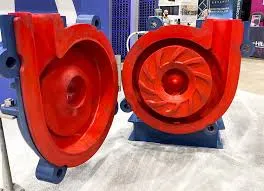Hebrew
- Afrikaans
- Albanian
- Amharic
- Arabic
- Armenian
- Azerbaijani
- Basque
- Belarusian
- Bengali
- Bosnian
- Bulgarian
- Catalan
- Cebuano
- Corsican
- Croatian
- Czech
- Danish
- Dutch
- English
- Esperanto
- Estonian
- Finnish
- French
- Frisian
- Galician
- Georgian
- German
- Greek
- Gujarati
- Haitian Creole
- hausa
- hawaiian
- Hebrew
- Hindi
- Miao
- Hungarian
- Icelandic
- igbo
- Indonesian
- irish
- Italian
- Japanese
- Javanese
- Kannada
- kazakh
- Khmer
- Rwandese
- Korean
- Kurdish
- Kyrgyz
- Lao
- Latin
- Latvian
- Lithuanian
- Luxembourgish
- Macedonian
- Malgashi
- Malay
- Malayalam
- Maltese
- Maori
- Marathi
- Mongolian
- Myanmar
- Nepali
- Norwegian
- Norwegian
- Occitan
- Pashto
- Persian
- Polish
- Portuguese
- Punjabi
- Romanian
- Russian
- Samoan
- Scottish Gaelic
- Serbian
- Sesotho
- Shona
- Sindhi
- Sinhala
- Slovak
- Slovenian
- Somali
- Spanish
- Sundanese
- Swahili
- Swedish
- Tagalog
- Tajik
- Tamil
- Tatar
- Telugu
- Thai
- Turkish
- Turkmen
- Ukrainian
- Urdu
- Uighur
- Uzbek
- Vietnamese
- Welsh
- Bantu
- Yiddish
- Yoruba
- Zulu
Telephone: +86 13120555503
Email: frank@cypump.com
נוב . 06, 2024 11:12 Back to list
Basement Sewage Pumps for Effective Wastewater Management Solutions
Choosing the Right Sewage Pump for Your Basement
When it comes to managing wastewater in your home, particularly in basements, having a reliable sewage pump is essential. A sewage pump can prevent damaging backups and unpleasant odors caused by sewage overflow, ensuring the safety and hygiene of your living space. In this article, we will explore the key considerations for selecting a sewage pump for your basement, types of pumps available, and maintenance tips to ensure longevity.
Understanding Sewage Pumps
A sewage pump is a specific type of pump designed to transport wastewater, including solids, from lower areas of your home, such as basements, to the main sewer line. Unlike regular sump pumps, sewage pumps can handle solid waste and are equipped with a grinder mechanism that can break down solids before pumping. This is particularly useful in homes with plumbing below the main sewer line, as it prevents clogs and keeps the sewage flowing smoothly into the sewer system.
Types of Sewage Pumps
There are two primary types of sewage pumps duplex and simplex pumps.
1. Simplex Sewage Pumps A simplex pump consists of a single pump and is best suited for smaller tasks. If your basement is low-risk for flooding and normal flows are manageable, a simplex sewage pump may suffice. However, if the pump fails or gets clogged, there is no backup system, which can lead to significant inconveniences.
2. Duplex Sewage Pumps Duplex systems are more reliable, as they include two pumps that operate alternately. If one pump fails or if the flow exceeds the capability of one pump, the second can activate automatically. This redundancy is essential for larger basements or homes where heavy usage occurs. Though they typically come at a higher cost, duplex systems offer peace of mind.
Factors to Consider When Choosing a Sewage Pump
When selecting a sewage pump for your basement, several important factors must be considered
sewage pump for basement

1. Pump Size and Capacity Determine the size of the pump based on the volume of wastewater you expect to handle. Consider the flow rate (typically measured in gallons per minute, GPM) and the head height (the vertical distance the pump needs to lift the wastewater). Look for pumps that can handle your specific flow needs efficiently.
2. Horsepower Pumps usually range from ½ to 2 horsepower. Higher horsepower pumps can handle larger amounts of waste and will be more suitable for larger households or heavy usage scenarios.
3. Construction Material The material of the sewage pump can affect its durability and lifespan. Most sewage pumps are made from cast iron or thermoplastic. Cast iron offers durability and resistance to corrosion but might be heavier, while thermoplastic pumps can be lighter and rust-resistant.
4. Float Switch Options Choose a pump with a reliable float switch to automatically turn it on and off based on the water level in the basin tank. Different designs (like tethered or vertical float switches) may affect positioning and response times.
5. Noise Level Some pumps are noisier than others. Look for options that are designed with noise-reduction features, especially if sound is a concern in your living space.
Maintenance Tips
Maintaining your sewage pump is crucial to its performance and longevity. Here are some tips
- Regular Inspections Check the pump every few months to ensure it is functioning properly. Look for signs of wear and tear, and listen for abnormal noises. - Test the System Run the pump regularly, especially if it's not in frequent use, to ensure it activates without problems. - Clean the Impeller Periodically clean the impeller and check for any debris that may hinder its operation. - Check Electrical Components Make sure connections are secure and working properly. Inadequate power supply can hamper performance.
Conclusion
Investing in a sewage pump and ensuring proper maintenance can save homeowners from costly repairs and health hazards associated with sewage backups. Understanding your needs, selecting the right pump, and maintaining it diligently will foster a safer and cleaner basement environment. With the right sewage pump in place, you can take comfort in knowing that your home is well-protected from wastewater issues.
-
Custom Drilling Mud and Slurry Pump Supplier - High Efficiency, Tailored Solutions
NewsJun.10,2025
-
Supply Vertical Submersible Sewage Pump High-Efficiency WQ/QW Pumps Supplier
NewsJun.10,2025
-
Premium Sewage Ejection System & Pumps Efficient Waste Removal
NewsJun.09,2025
-
Premium Wholesale Slurry Pump Impellers Durable & Efficient Slurry Handling
NewsJun.09,2025
-
Top Sewage Pump Companies Durable Industrial Solutions for Efficiency
NewsJun.09,2025
-
Heavy Duty Slurry Pumps - OEM High Performance & Bulk Wholesale
NewsJun.09,2025










